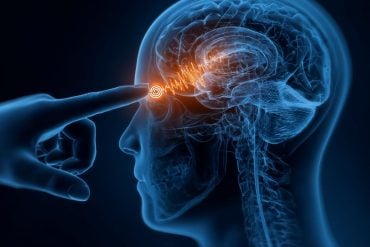Summary: A new study comparing long COVID patients with fully recovered individuals has found that those with persistent cognitive symptoms, like brain fog, show higher brain inflammation and reduced capacity to handle stress. The study revealed lower levels of nerve growth factor and elevated inflammatory markers in the long COVID group.
Despite performing similarly on standard cognitive tests, these individuals reported poorer quality of life, physical and emotional health, and showed deficits in verbal fluency. These findings validate the experiences of long COVID patients and suggest biological markers could help clinicians better diagnose and treat persistent symptoms.
Key Facts:
- Biomarker Imbalance: Long COVID patients had lower nerve growth factor and higher IL-10, indicating impaired neuroplasticity and inflammation.
- Language Deficits: Participants with long COVID performed worse on letter fluency tests, despite otherwise normal cognitive assessments.
- Lower Quality of Life: Long COVID patients reported poorer physical, emotional, and psychological well-being than recovered individuals.
Source: Corewell Health
A new study that is the first to compare inflammation and brain stress responses in long COVID-19 patients with individuals who have fully recovered shows that those with continued brain fog and other cognitive issues have a lower ability to adapt to stress and higher levels of inflammation in their brains.
While previous long COVID studies have shown changes in these markers in mice, this study evaluated the infection’s impact on the brain in documented COVID-positive patients.

Up until now, physicians have found it difficult to understand why certain patients develop post-COVID cognitive symptoms while others do not. Recent studies estimate tens of millions of people worldwide still have not recovered from the COVID infection, even five years later.
“We compared our long COVID participants to our healthy, fully recovered control group based on neurocognitive measures, emotional functioning, measures of quality of life as well as specific changes in blood markers assessing stress response,” said lead author Michael Lawrence, Ph.D., neuropsychologist at Corewell Health in Grand Rapids, Michigan.
“To our knowledge, this is the first controlled study that shows specific self-reported neurocognitive and central nervous systems changes in long COVID patients which validates the symptoms they’ve been experiencing.”
The pilot study, published in PLOS One, included 17 confirmed COVID patients (10 with long COVID and seven who were fully recovered with no lingering symptoms) and found the following:
- Serum levels of nerve growth factor, a biomarker of the brain’s ability to change and adapt by forming new connections, were significantly lower in the long COVID group. This group was also more likely to have higher serum levels of interleukin (IL)-10, a marker of inflammation.
- While there was virtually no difference between groups related to neuropsychological test outcomes, long COVID participants did score significantly lower on letter fluency, meaning they had more difficulty with quickly and accurately accessing language centers in the brain and producing words beginning with various letters.
- The long COVID group also had significantly lower ratings than healthy controls on quality of life, physical health, emotional functioning and psychological well-being responses.
“Although this is a small study and more work needs to be done, from a clinical application standpoint, physicians potentially can identify individuals who are struggling sooner and provide wrap-around care that could be helpful to them,” said Judith Arnetz, Ph.D., professor emerita at Michigan State University College of Human Medicine and corresponding author of the study.
According to the study authors, the struggle physicians have with evaluating long COVID patients is that when asked to complete various written diagnostic tests, they tend to look normal.
“These patients experience significant frustration, and their symptoms often may be minimized by friends, family and even the medical community,” Dr. Lawrence said.
“It’s tough when everything looks normal on paper, but our patients continue to struggle and report a multitude of difficulties.”
Dr. Arnetz agreed and indicated that physicians might want to take a multidisciplinary approach to care and assess inflammatory and brain biomarkers, which could ultimately offer a better path forward in treating patients with long COVID.
“Additional services such as speech therapy, psychotherapy for stress reduction and incorporating medications that target fatigue and mental fogginess could all be elements of creating a successful treatment plan as well,” Dr. Lawrence said.
About this long COVID and neurology research news
Author: Sarina Gleason
Source: Corewell Health
Contact: Sarina Gleason – Corewell Health
Image: The image is credited to Neuroscience News
Original Research: The findings will appear in PLOS One






